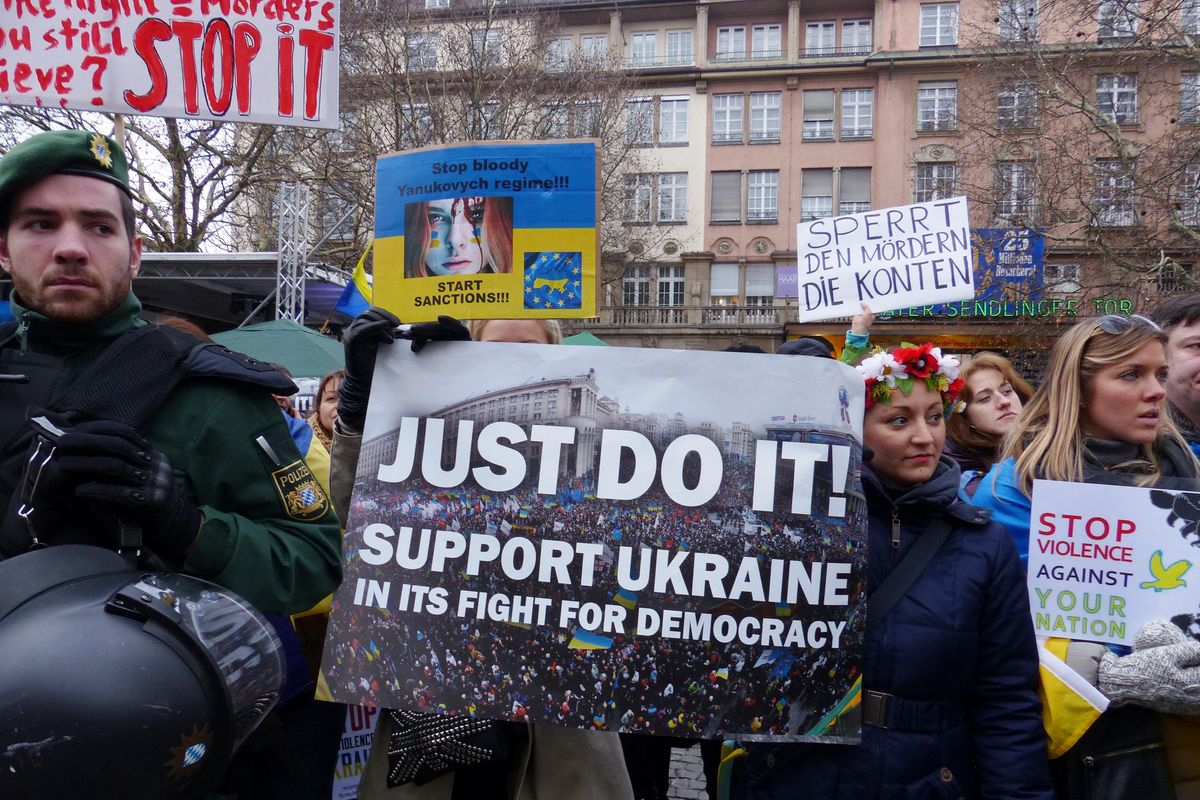
Unless you’ve been camping in the middle of nowhere without cell service, you’ll know that Russia invaded Ukraine last week. The war in Ukraine has had the world’s attention since before Russian troops stepped foot on Ukrainian soil. It seems everyone has been glued to their televisions or other devices looking for updates on the conflict, but some people are getting a bit more than an update. Several journalists in European countries as well as the U.S. have made statements within their newscasts that have raised eyebrows and made people ask what exactly they mean.
Listening to reports on the refugee crisis resulting from the invasion is interesting to say the least. While it seems the majority of reporting is free from bias, others are steeped in so much bias that it goes beyond implicit to explicit in many ways. A reporter from CBS, Charlie D’Agata, had to make an apology due to his on-air remarks; he said “this is a relatively civilized, relatively European—I have to choose those words carefully, too—city, where you wouldn’t expect that or hope that would happen,” after making a comparison to Iraq and Afghanistan.
A French reporter Philippe Corbé, for BFM TV, a 24-hour French news network exclaimed, “We’re not talking here about Syrians fleeing the bombing of the Syrian regime backed by Putin; we’re talking about leaving in cars that look like ours to save their lives.” In an interview with the BBC, a former deputy prosecutor general of Ukraine said “It’s very emotional for me because I see European people with blue eyes and blond hair…being killed every day.” The comment went unchallenged by the anchors and was instead met with “I understand and respect the emotion.”
u201cItu2019s very emotional for me because I see European people with blue eyes and blonde hair being killedu201dpic.twitter.com/mKVtEY4IBC— Petty Is Praxis (@Petty Is Praxis)
1645915194
One would hope this would be the end of the comments by professionals showing their bias, but unfortunately, there are more examples. A journalist reporting for ITV from Poland said “Now the unthinkable has happened to them. And this is not a developing, third world nation. This is Europe!” Yet another reporter from the Telegraph expressed his sentiments, writing “They seem so like us. That is what makes it so shocking. Ukraine is a European country. Its people watch Netflix and have Instagram accounts, vote in free elections and read uncensored newspapers. War is no longer something visited upon impoverished and remote populations.”
This is a civilized city!nThey’re blue-eyed and blond-haired!nThis is Europe, not the Third World!nnTonight on @MSNBC, @AymanM and I discussed some of the awful and, frankly, racist coverage of the Ukraine war & Ukrainian refugees compared to the MidEast:pic.twitter.com/ir6qWHBNE6— Mehdi Hasan (@Mehdi Hasan)
1646017529
Unfortunately the bizarre statements continue without so much as a follow-up question in many of these instances. Comments like these imply that war is to be expected in developing nations, or because the people experiencing war in Ukraine lack a certain look they should be spared. It hasn’t gone unnoticed by journalists of color, or by people of color absorbing the news. In fact, a political commentator for MSNBC, Mehdi Hasan, rebuked the biased reporting while on the air asking the question while reciting quotes from news clips, “‘Well-dressed people’ and ‘this is not the third world,’ they really mean white people, don’t they?”
The question feels like it had to be asked after all of these on-air snafus, but bias is so sneaky that these reporters likely didn’t realize how their words would be received. Heightened emotions from empathetic humans can not only cloud your judgment, but allow for more bias to seep in as you consider your own safety when seeing people that look like you being harmed. No one is saying these reporters can’t be empathetic, but it’s uncovering the areas that should be worked through so the automatic thought isn’t that this shouldn’t happen to them because they look like us, but that this shouldn’t happen to people, period.
